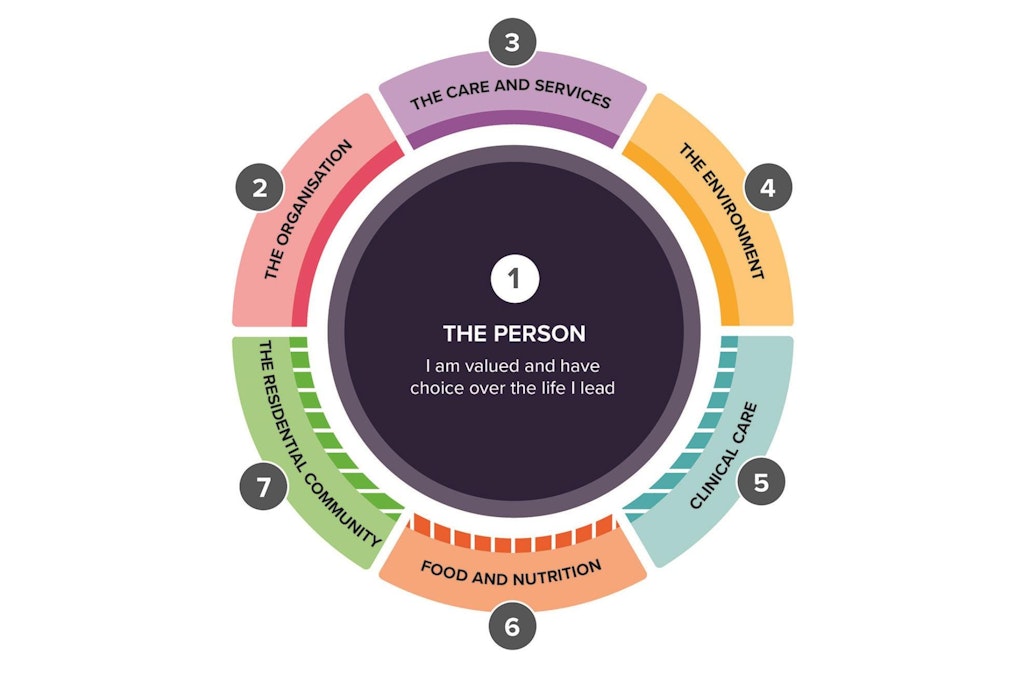Final draft of the strengthened Quality Standards refines key elements
Published on 19 December 2023 (Last updated on 22 December 2023)

Introduced in 2019, the Aged Care Quality Standards are about to undergo a major overhaul after the Government published the final draft of the strengthened Standards that will be implemented with the New Aged Care Act in 2024.
The wheels of change have been in motion since 2021 when the Royal Commission into Aged Care Quality and Safety recommended an urgent review and amendment of the Aged Care Quality Standards.
At the time, the Royal Commission called for additional detail and focus on issues such as food and nutrition, dementia, diversity, governance and clinical care. After several consultation periods, those key changes have been made with industry leaders ready for meaningful improvements.
“The strengthened Aged Care Quality Standards represents a significant step in aged care reform, it’s important to recognise that it will inform legislative drafting into the new Aged Care Act and is definitely a move towards enhancing the quality and accessibility of aged care,” explained Claire Ward, Consulting Specialist Anchor Excellence.
“The real impact and transformation will depend on how the new Quality Standards are implemented and enforced. Industry and stakeholders will need to actively engage and collaborate to turn these plans into meaningful improvements. Click below to read the final draft.”

Strengthened Quality Standards: Key points
- The existing eight Quality Standards have been reorganised and revised down to seven; at the centre is Standard 1: The Person
- Each Quality Standard includes an expectation statement for older people, the intent of each standard, enforceable outcomes and actions to be demonstrated by a provider
- Standard 6: Food and Nutrition is the most notable addition as it introduces actions related to malnutrition, the food and dining experience and resident choice
- A pilot project earlier this year involved a sample of 40 providers who found new audit methodology related to the new Standards was easier and more transparent
- The Quality Standards are not yet in operation as they will come into effect with the new Aged Care Act in mid-2024
The strengthened Aged Care Standards are a key feature of the ongoing aged care reform process. Their evolution aligns with the Government’s intention to change how they assess the quality of aged care services and to simplify their processes and resources.
Additionally, each Standard is intertwined with Standard 1: The Person to ensure important concepts important in fostering a sense of safety, autonomy, inclusion and quality of life. Therefore, it emphasises diversity, interests and personal experiences as a crucial element for the succeeding Standards.
Early feedback on the Standards has been positive with some appreciating the inclusion of more understandable language, and most importantly, that key focus on the person.
“Pleased to see a more holistic approach to the provision of quality services. The overarching framework is now centred on being valued and having choice – person-centred, and self-determined,” said Judith Leeson AM, Director of Vector Consultants and aged care advocate.
Snapshot of the new Standards
Standard 1: The Person – Underpinning how providers and workers are expected to treat older people, Standard 1 introduced Person-centred care concepts around dignity, respect, individuality, diversity, choice and control. Older people are supported to make decisions for their care and services.
Standard 2: The Organisation – Expectations of the governing body are explained to ensure the provider meets the requirements of the various Quality Standards while providing care and services.
Standard 3: The Care and Services – The way care should be delivered is outlined in Standard 3 with effective assessment, planning, communication and coordination essential.
Standard 4: The Environment – Standard 4 focuses on the physical environment to ensure providers – and older people – operate and live in a safe, clean and comfortable environment.
Standard 5: Clinical Care – One of the most important Standards, the Clinical Care Standard describes the responsibilities of providers to deliver safe and quality clinical care. This includes incorporating a clinical governance framework, providing person-centred care and maintaining quality systems with internal and external health professionals. Dementia care and palliative care are included here.
Standard 6: Food and Nutrition – Introducing a standalone Food and Nutrition Standard is incredibly important. Food, drink and the dining experience impact quality of life and Standard 6 calls for a more inclusive and supportive food and dining experience. Another feature is the need to assess, monitor and prevent malnutrition and dehydration.
Standard 7: The Residential Community – Providers have an increased responsibility to ensure that older people remain engaged in hobbies and activities inside a residential community, and also outside of it. Each resident must be supported to do the things they want, such as maintaining relationships and connecting with the community.
It’s expected that the new Standards will take effect from July 1 2024, pending the passing of the new Aged Care Act.